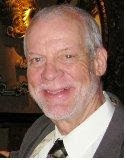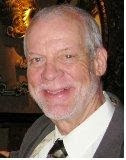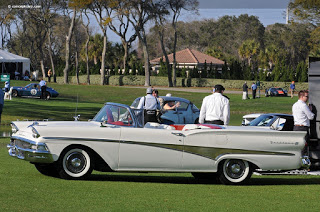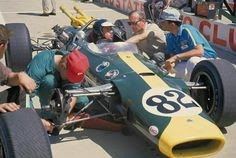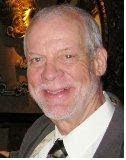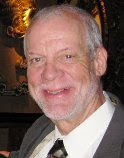In his brilliant and encyclopedic new book, Why the Right Went Wrong: Conservatism from Goldwater to the Tea Party and Beyond, E. J. Dionne, Jr., spells out in exhaustive detail how the Grand Ol’ Party evolved from the Middle American conservatism of Dwight David Eisenhower to the rabid, ranting, rage of Donald Trumps’ avid band of Storm Troopers. In a nutshell, it happened when the bedrock conservative vision of Barry Goldwater–which had given rise to the hopes of millions of conservative, white working-class people that their superior status among the races was assured—sustained set-back after set-back politically in the decades to follow.
Not only did Goldwater lose in a landslide resulting in the election of LBJ who ushered in the Voting Rights Act but the next Republican president, Richard M. Nixon turned out to be a stealth liberal whose term ended in utter shame and embarrassment. In his 1978 memoir, RN, Nixon wrote, “I won a majority of every key population group identified by Gallup except the blacks and the Democrats. Four of those groups—manual workers, Catholics, members of labor union families and people with only grade school educations—had never before been in the Republican camp in all the years since Gallup had begun keeping these records.” [Why the Right Went Wrong, p.74.]
“Now,” Nixon wrote, “I planned to give expression to the more conservative values and beliefs of the New Majority throughout the country….I intended to revitalize the Republican Party along New Majority lines.” [ibid.]
The migration of white Southern Democrats to the GOP had been going on since LBJ’s hay-day as president. But it was Ronald Reagan’s failed 1976 campaign, whereby he “rais[ed] a banner of no pale pastels but bold colors which make it unmistakenly clear where we stand” that launched the “Reagan Revolution” toward which the Party stills displays undying fealty. It was a banner that Gerald Ford hastened to pick up, as has every GOP president since, though George H. W. Bush dropped it more than once.
His son, George W. Bush, who liked to call himself a “compassionate conservative”, further frustrated those who considered themselves to be “true conservatives”. His bumbling engagement in two costly wars in southern Asia and the Middle East further alienated his conservative base and the Great Recession which closed out his term in office left many of them in a sad way economically.
In Dionne’s view, this, combined with the ascension of a black man to the Presidency, is what led to the level of vitriol we now see on the faces of the men and women who comprise a typical Donald Trump mob today. They are the new base of the GOP. They come from “red states” as well as “blue states”. (Thus my title for this piece, Purple Rage.) They see change not as something they can believe in but as something to fear. It is not stalemate in Washington that they lament but an arc of history that for them is bending toward the Left. For almost 50 years, they have witnessed one frustration after another coming out of Washington. The only bright light for them is Ronald Reagan. He made this country, in their eyes, “great”.
Now, along comes The Donald, promising to make America great again. He is unlike any politician they have ever known—brash, tough, taking no crap. He is rich, he is powerful and he’s bold. Perhaps they haven’t noticed that his posture on stage, his swagger, suggests no one–as someone on the Bill Maher Show last Friday pointed out—so much as “Il Duce” himself, Benito Mussolini. I like to think of him as “Donito Trumponi”.
I don’t know how similar the situation in the United States today is to that of Eastern and Southern Europe in the days following World War I and the Great Depression. But I do believe that the kind of change the world has undergone over the past 60 years can produce a great deal of fear—and the concomitant anger—in those whose core values appear to be steadily eroding. I have seen their faces in the crowds surrounding Mr. Trump and it frightens me. I am frightened even though I have made the attempt to understand from where they are coming. But when I think of what lies in store for America and the rest of the world should Mr. Trump become the most powerful man in that world, my knees start to rattle. It is not too late to interrupt this eventuality. I still believe that there are more Americans who welcome progress toward a better life for all than resent it. But those of us of that mind must follow through on what we know is the only peaceful means available to interrupt that darker vision and that is to vote for the side that still believes that justice for all and animosity for none is the better way.
P.S. Here’s a quote that I just ran across. The source is unknown:
“When you’re accustomed to privilege, equality feels like oppression.”
© 7 Mar 2016
About the Author
I came to the
beautiful state of Colorado out of my native Kansas by way of Michigan, the
state where I married and had two children while working as an engineer for the
Ford Motor Company. I was married to a wonderful woman for 26 happy years and suddenly
realized that life was passing me by. I figured that I should make a change, as
our offspring were basically on their own and I wasn’t getting any younger.
Luckily, a very attractive and personable man just happened to be crossing my
path at that time, so the change-over was both fortuitous and smooth.
Soon after, I retired and we moved to Denver, my husband’s home town. He passed away after 13 blissful years together in October of 2012. I am left to find a new path to fulfillment. One possibility is through writing. Thank goodness, the SAGE Creative Writing Group was there to light the way.
